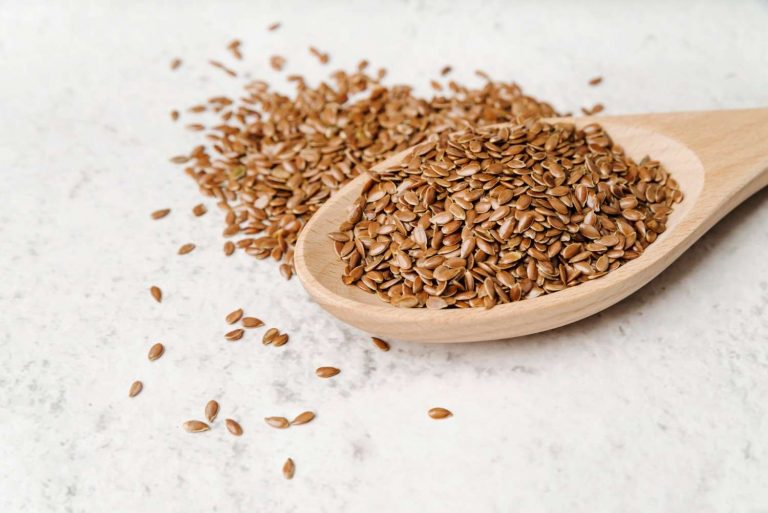Did you know that your kitchen might hold a remedy for abdominal inflammation? Yes, you read that right! Castor oil, a staple in many households, has been gaining traction as a natural solution for various health issues, including inflammation. With its rich history and potential health benefits, it’s worth exploring how this versatile oil can help soothe your tummy troubles.
In this article, we’ll dive into five practical steps to relieve abdominal inflammation using castor oil. Whether you’re dealing with conditions like irritable bowel syndrome (IBS), gastritis, or general inflammation, these steps could help you find some relief. So, let’s get started!
Contents
Understanding Abdominal Inflammation
Before we jump into the nitty-gritty, let’s take a moment to understand what abdominal inflammation actually is. Inflammation is your body’s natural response to injury or infection, but when it becomes chronic, it can lead to various health issues. Symptoms can include bloating, pain, and discomfort, which can significantly impact your quality of life.
While there are many ways to tackle inflammation, castor oil stands out due to its unique properties. It contains ricinoleic acid, which has been shown to exhibit anti-inflammatory effects. So, how do you harness this oil for your abdominal woes? Here are five steps to get you started.
Step 1: Prepare Your Castor Oil Pack
What You’ll Need:
- Castor oil (preferably cold-pressed)
- A piece of flannel or cotton cloth (about 12×12 inches)
- Plastic wrap (to cover the pack)
- A heating pad or hot water bottle
How to Do It:
- Soak the Cloth: Pour a generous amount of castor oil onto the cloth, ensuring it’s saturated but not dripping.
- Apply: Lay the cloth on your abdomen, focusing on the area where you feel discomfort.
- Cover: Use plastic wrap to cover the cloth, preventing any mess.
- Heat: Place a heating pad or hot water bottle over the pack. The heat helps the oil penetrate deeper into your skin, enhancing its anti-inflammatory effects.
Pros and Cons:
Pros: This method is simple and can be done in the comfort of your home. The heat combined with the oil can provide immediate relief.
Cons: Some people may find the oil too greasy or messy. It’s also essential to ensure you’re not allergic to castor oil before using it.
Step 2: Incorporate Castor Oil in Your Diet
Aside from topical applications, ingesting castor oil can also help relieve inflammation internally. However, this should be approached with caution.
How to Do It:
- Dosage: Start with a small amount, like a teaspoon, to see how your body reacts. Too much can lead to digestive upset.
- Mix it Up: You can mix castor oil with honey or juice to mask the taste.
Pros and Cons:
Pros: It may provide systemic relief, addressing inflammation from the inside out.
Cons: Ingesting castor oil can have a laxative effect, so it’s crucial to monitor your body’s response.
Step 3: Combine with Essential Oils
Essential oils can amplify the benefits of castor oil, providing additional soothing effects.
What You’ll Need:
- Castor oil
- Essential oils like lavender or peppermint (known for their anti-inflammatory properties)
How to Do It:
- Blend: Mix a couple of drops of your chosen essential oil with castor oil.
- Massage: Gently massage the mixture onto your abdomen in a circular motion.
Pros and Cons:
Pros: This step not only targets inflammation but also promotes relaxation, which can be beneficial for your digestive system.
Cons: Always perform a patch test to ensure you don’t have an allergic reaction to the essential oils.
Step 4: Maintain a Healthy Diet
While castor oil can help relieve symptoms, it’s essential to complement it with a healthy diet.
What to Eat:
- Anti-inflammatory foods: Think leafy greens, berries, fatty fish, and nuts.
- Hydration: Drink plenty of water to help flush out toxins.
Pros and Cons:
Pros: A balanced diet will not only help reduce inflammation but also improve your overall health.
Cons: Changing your diet can be challenging, especially if you’re used to processed foods.
Step 5: Listen to Your Body
One of the most crucial steps in managing abdominal inflammation is tuning into your body’s signals.
How to Do It:
- Track Symptoms: Keep a journal of your symptoms, noting when they improve or worsen after using castor oil or making dietary changes.
- Consult a Professional: If your symptoms persist, don’t hesitate to reach out to a healthcare provider.
Pros and Cons:
Pros: This step empowers you to take control of your health.
Cons: It requires commitment and may take time to see results.
FAQs
1. Can I use castor oil if I’m pregnant?
It’s generally advised to avoid using castor oil during pregnancy due to its potent laxative effects. Always consult with your healthcare provider first.
2. How often should I use a castor oil pack?
You can use a castor oil pack several times a week. However, listen to your body and adjust based on how you feel.
3. Is it safe to ingest castor oil regularly?
Ingesting castor oil should be done cautiously and not as a long-term solution. Always consult a healthcare professional for personalized advice.
4. What should I do if I have an allergic reaction?
If you experience any adverse effects, discontinue use immediately and consult a healthcare provider.
Conclusion
Navigating through abdominal inflammation can be a frustrating journey, but castor oil offers a natural and accessible option for relief. With these five steps—preparing a castor oil pack, incorporating it into your diet, combining it with essential oils, maintaining a healthy diet, and listening to your body—you can take proactive steps towards feeling better.
Remember, while castor oil can be beneficial, it’s not a one-size-fits-all solution. Research is ongoing, and while results are promising, consulting with a healthcare provider is always a wise choice.
This article is for educational purposes only and is not a substitute for professional medical advice. Always consult a qualified healthcare provider before making changes to your health routine.
References
-
Houghton, P. J., & Zenk, M. H. (2001). Castor oil: A review of its medicinal properties. Journal of Ethnopharmacology. https://www.sciencedirect.com/science/article/pii/S0378874101001584
-
Mayo Clinic. (2023). Irritable bowel syndrome (IBS). Retrieved from https://www.mayoclinic.org/diseases-conditions/irritable-bowel-syndrome/symptoms-causes/syc-20358780
-
National Institutes of Health. (2022). The role of diet in the management of inflammatory bowel disease. Retrieved from https://www.ncbi.nlm.nih.gov/pmc/articles/PMC8991645/
Get Your FREE Natural Health Guide!
Subscribe now and receive our exclusive ebook packed with natural health tips, practical wellness advice, and easy lifestyle changes, delivered straight to your inbox.




